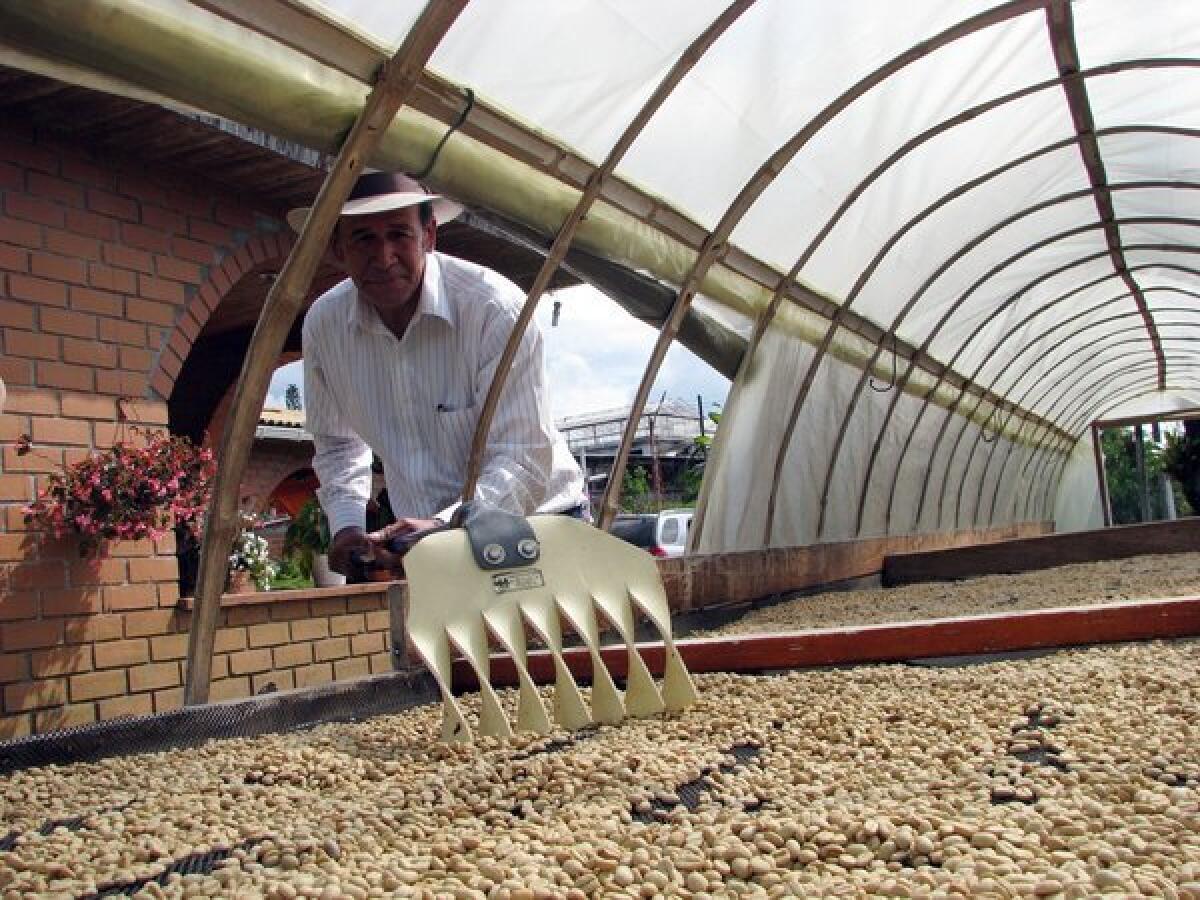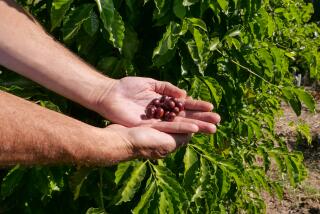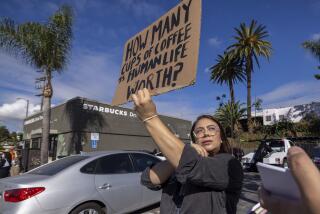As Starbucks heads to Colombia, growers have grounds for regret

BOGOTA, Colombia -- With Starbucks preparing to enter the Colombian market and compete against entrenched retailers, including the country’s signature Juan Valdez chain, some growers here can be excused for wondering, “What if?”
In the early 1970s, when Starbucks was launched in Seattle, company executives offered the Colombian Federation of Coffee Growers a minority ownership stake in exchange for a steady supply of the country’s high quality, smooth-tasting arabica beans, among the most coveted in the world.
The federation, which now numbers 18,000 coffee farmers, declined the offer -- a “colossal mistake,” in the opinion of University of Miami international relations professor Bruce Bagley, given the global expansion of the Starbucks chain and the rise in value of its stock.
“The federation’s traditional leadership turned down the offer with the argument there was no future or real profits in retailing coffee by the cup around the globe,” said Bagley, who has researched the coffee industry in Colombia. “That decision cost the federation dearly. They have been behind the Starbucks curve ever since.”
Starbucks announced last week that it would open 50 stores in Colombia by 2019, starting with a flagship location early next year in the capital, Bogota. The company also promised to serve exclusively Colombian beans, a salve to growers who fear that the retailing giant might bring in beans from other countries.
The grower-owned Juan Valdez chain, whose emblem includes the familiar image of a coffee farmer and his mule carrying sacks of beans, got into the retailing business relatively late, in 2002. It now has 170 stores in Colombia and 64 in the United States and other countries, the company’s chief executive, Hernan Mendez, said in an interview.
Over the last several years, the company has adopted a more aggressive expansion program using a franchise model, after initially trying to own its locations.
Mendez, who took over at Juan Valdez three years ago after heading Alpina, Colombia’s leading dairy concern and a highly successful exporter, said the company does not have the capital to continue to grow internationally by financing new locations on its own.
In coming months, Juan Valdez franchisees will open 65 locations in places such as Bolivia, Costa Rica, Brunei and Kuwait.
Mendez said his company wasn’t afraid of competing on its home turf against Starbucks, and was counting on consumer loyalty to the “Colombianality” of the Juan Valdez brand.
“The social networks have been filled with comments like, ‘We won’t let the Americans conquer us,’ ” he said.
Mendez added that it was natural that Starbucks wanted to come to Colombia, because of the expanding economy and relatively low per-capita consumption of coffee.
The Starbucks announcement came amid a strike by coffee growers that began Aug. 19 and remains in effect in several parts of Colombia.
Coffee farmers in Huila, Cauca, Narino and other provinces have threatened to maintain blockades of several principal roads until the government delivers financial aid to offset a decline in global coffee prices over the last year. They say the low prices make it impossible for them to recoup their costs.
“This is war, a real war,” said Lorenzo Guzman, a coffee grower in San Agustin, in Huila province. He said growers called off a similar strike in March after the government promised aid that it subsequently failed to deliver.
ALSO:
Obama, Putin meet at summit despite tensions over Syria
U.S. draws down diplomatic presence in Lebanon and Turkey
European court voids EU sanctions against some Iranian firms
Kraul is a special correspondent.
More to Read
Sign up for Essential California
The most important California stories and recommendations in your inbox every morning.
You may occasionally receive promotional content from the Los Angeles Times.










